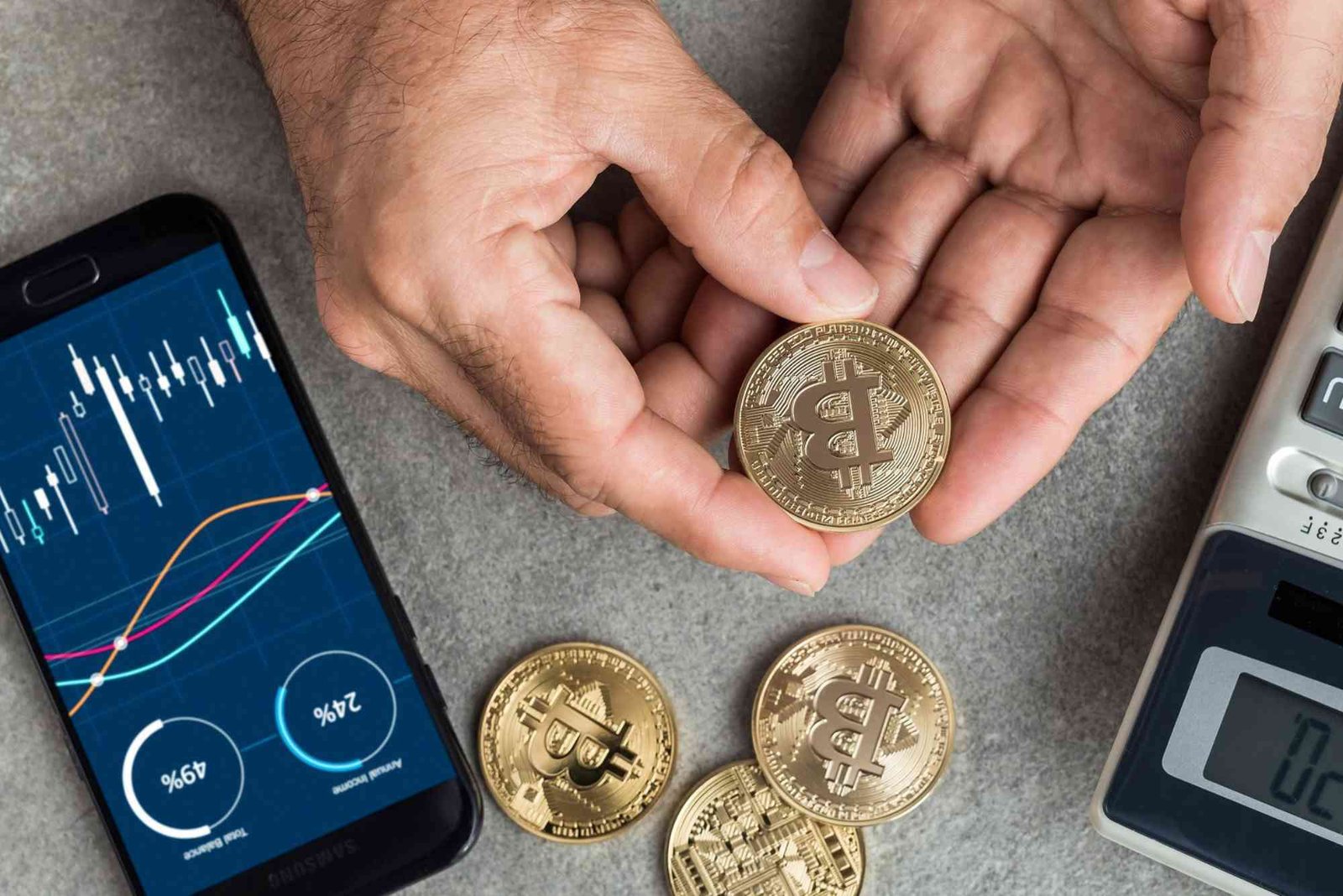Introduction
In recent years, the term Bitcoin has become one of the most searched topics across the globe. Whether you are an investor, a tech enthusiast, or just a curious learner, understanding what is Bitcoin — practical tips and expert advice can help you grasp the foundation of digital currency and its future potential. Bitcoin has revolutionized how people think about money, transactions, and financial independence. But what exactly is it, how does it work, and what should you know before diving in?
Understanding What Is Bitcoin
Bitcoin is a decentralized digital currency that allows users to send and receive money without involving banks or intermediaries. Created in 2009 by an anonymous person or group known as Satoshi Nakamoto, Bitcoin operates on blockchain technology—a distributed ledger that records every transaction across a network of computers. This system ensures transparency, security, and immutability.
Unlike traditional money issued by governments, Bitcoin is not controlled by any single authority. Its value is determined by market demand, similar to gold. If you want to explore in-depth What Is Bitcoin, you’ll understand how its structure offers both opportunities and risks for users worldwide.
The Core Technology Behind Bitcoin
The backbone of Bitcoin is its blockchain—a public ledger that records every transaction ever made. Each block contains a list of verified transactions, and once added to the chain, it cannot be changed or deleted. This technology eliminates fraud and ensures the integrity of the currency.
Mining is another crucial process. Miners use powerful computers to solve complex mathematical problems. When a miner successfully verifies a transaction, they are rewarded with new bitcoins. This is how new coins enter circulation, maintaining the supply-demand balance.
Why Bitcoin Matters Today
Bitcoin has become more than just a digital currency—it’s a global phenomenon. It challenges traditional financial systems, promotes financial inclusion, and provides opportunities for people in regions with limited access to banking. The freedom to control your own money without relying on centralized institutions makes Bitcoin appealing to many users.
Moreover, Bitcoin has inspired thousands of other cryptocurrencies and projects, expanding the blockchain ecosystem. From online payments to remittances and smart contracts, Bitcoin’s influence extends far beyond digital finance.
Practical Tips for Beginners
Start Small and Learn
If you’re new to Bitcoin, don’t rush. Begin by investing a small amount—an amount you can afford to lose. This will help you understand the system without taking huge financial risks. Use reliable sources to learn how Bitcoin wallets and exchanges work before making any moves.
Choose a Secure Wallet
A wallet is where you store your Bitcoin. There are two main types: hot wallets (online) and cold wallets (offline). Hot wallets are convenient but can be vulnerable to hacking. Cold wallets, on the other hand, are safer because they’re not connected to the internet. Always choose reputable wallet providers and enable two-factor authentication.
Understand Market Volatility
Bitcoin’s price can fluctuate dramatically. It’s not unusual for its value to rise or fall by thousands of dollars in a single day. Study market trends, follow expert analysis, and avoid making impulsive decisions based on hype.
Diversify Your Investments
Never put all your money into Bitcoin. Diversification reduces risk. Combine Bitcoin with other assets like stocks, real estate, or mutual funds to balance potential losses.
Stay Updated with Reliable Sources
The crypto market changes rapidly. Regularly follow credible platforms for updates and insights. You can Read more on www.coindesk.com to keep track of real-time market trends and expert opinions.
Common Mistakes to Avoid
Ignoring Security Practices
Many beginners lose money due to poor security. Always keep your private keys safe and never share them with anyone. Use hardware wallets for long-term storage and avoid keeping large amounts on exchanges.
Falling for Scams
Bitcoin’s popularity has attracted scammers. Be cautious of offers that sound too good to be true, such as guaranteed profits or fake investment schemes. Always verify before investing.
Neglecting Tax Obligations
In most countries, Bitcoin transactions are taxable. Keep detailed records of all your trades and consult a tax expert to ensure compliance with your local laws.
Bitcoin as an Investment
Bitcoin is often called “digital gold” due to its limited supply—only 21 million coins will ever exist. This scarcity, combined with rising global demand, makes it an attractive asset. However, its volatility means it’s not suitable for everyone. Long-term investors usually benefit more than short-term traders.
Many financial experts suggest holding Bitcoin for several years instead of frequently buying and selling. The key is patience, proper research, and a clear strategy. When used wisely, Bitcoin can be a valuable part of a diversified portfolio.
The Future of Bitcoin
The future of Bitcoin looks promising but uncertain. Governments and financial institutions worldwide are gradually recognizing its value, while others remain skeptical due to regulatory challenges. Technological innovations like the Lightning Network aim to make Bitcoin faster and more scalable for everyday use.
As adoption grows, Bitcoin could become a mainstream payment method, especially in online markets and international trade. However, potential challenges such as regulation, energy consumption, and competition from other cryptocurrencies might shape its evolution.
Expert Advice on Using Bitcoin Safely
Experts agree that understanding Bitcoin before investing is crucial. Here’s some practical advice from professionals in the field:
- Research before investing: Read whitepapers, follow trusted analysts, and join communities to learn from experienced investors.
- Use reputable exchanges: Choose platforms with strong security measures and transparent policies.
- Set realistic expectations: Bitcoin isn’t a get-rich-quick scheme. Approach it with a long-term mindset.
- Back up your data: Store wallet backups in multiple secure locations.
- Stay vigilant: Be aware of phishing emails, fake websites, and fraudulent apps pretending to be legitimate exchanges.
These practices protect your assets and help you make smarter financial decisions in the volatile crypto market.
Understanding Bitcoin Regulation
Regulation remains a complex topic. Some countries fully embrace Bitcoin, while others impose restrictions or bans. In nations where Bitcoin is legal, it’s often treated as a taxable asset. Understanding local regulations helps investors operate safely and avoid legal complications.
Transparency is key. As governments explore Central Bank Digital Currencies (CBDCs), Bitcoin’s decentralized nature might become even more significant. It provides an alternative to state-controlled financial systems, giving individuals more control over their wealth.
Environmental Concerns and Solutions
Bitcoin mining consumes significant energy, which has led to debates about its environmental impact. However, the industry is evolving. Many mining operations are transitioning to renewable energy sources such as solar, hydro, and wind power. These efforts aim to make Bitcoin more sustainable in the long run.
Technological advancements like energy-efficient mining hardware and improved consensus algorithms could further reduce Bitcoin’s carbon footprint in the future.
FAQs
How does Bitcoin make money?
Bitcoin generates profit through buying low and selling high. Miners also earn rewards by verifying transactions and adding new blocks to the blockchain.
Is Bitcoin safe to use?
Yes, Bitcoin transactions are secure due to blockchain encryption. However, users must protect their wallets and avoid scams to stay safe.
Can Bitcoin be converted to cash?
Absolutely. Bitcoin can be sold on exchanges for traditional currencies like USD, EUR, or PKR. Withdrawal options vary depending on your region and exchange.
What are the disadvantages of Bitcoin?
Bitcoin’s main drawbacks include price volatility, slow transaction times during congestion, and the potential for loss if private keys are misplaced.
Is Bitcoin legal in every country?
No. While Bitcoin is legal in many countries, others restrict or ban its use. Always check your local regulations before investing.
Bitcoin has transformed how people perceive and handle money. Understanding what is Bitcoin — practical tips and expert advice helps you make informed decisions and avoid common pitfalls. It’s not just about investment; it’s about participating in a new financial revolution.
As blockchain technology evolves, Bitcoin continues to influence innovation, digital finance, and economic empowerment. Whether you’re investing, trading, or simply learning, take time to understand the fundamentals before getting involved.
If you’re ready to explore more, check What Is Bitcoin Details for an in-depth guide. Start small, stay informed, and take control of your financial future with knowledge as your strongest asset.












